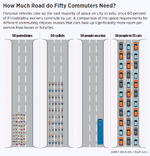John
TS Member
- Favourite Ride
- Steel Vengeance
There's two types of hydrogen car - those that burn hydrogen in an engine similar to conventional cars and those that convert hydrogen to electricity in a fuel cell, which then drives a motor similar to those in electric cars.
The problem with hydrogen is it's relatively difficult to make it renewably - most hydrogen is currently made by breaking down hydrocarbons. Clean hydrogen (from electrolysis of water) takes a lot of electricity to produce, so using it in cars only makes sense if battery tech doesn't improve. With better batteries you may as well just use electric cars and cut out the middle man.
The problem with hydrogen is it's relatively difficult to make it renewably - most hydrogen is currently made by breaking down hydrocarbons. Clean hydrogen (from electrolysis of water) takes a lot of electricity to produce, so using it in cars only makes sense if battery tech doesn't improve. With better batteries you may as well just use electric cars and cut out the middle man.


